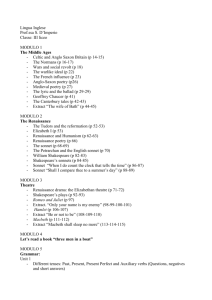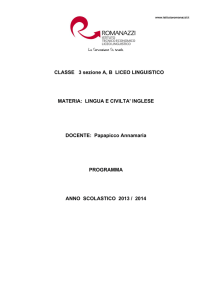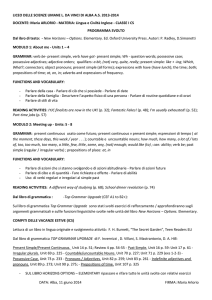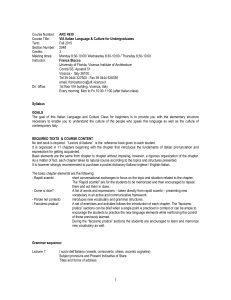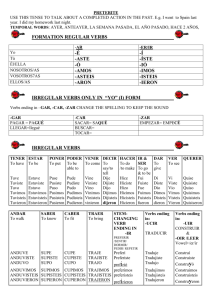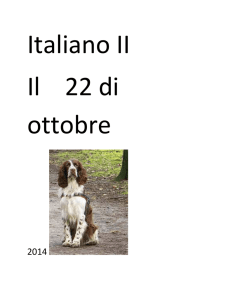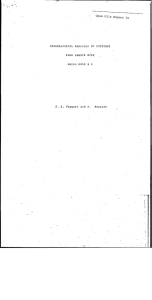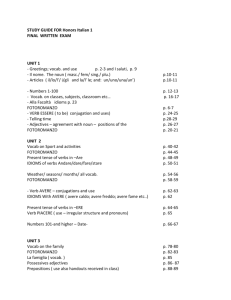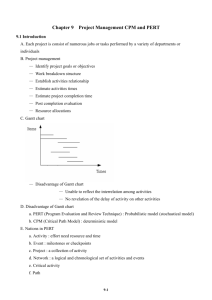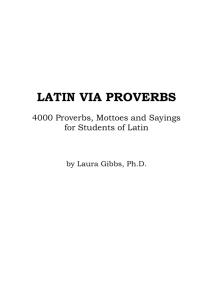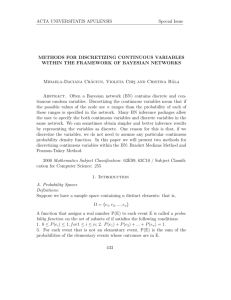Presente Semplice vs. Continuo: Grammatica Inglese
advertisement
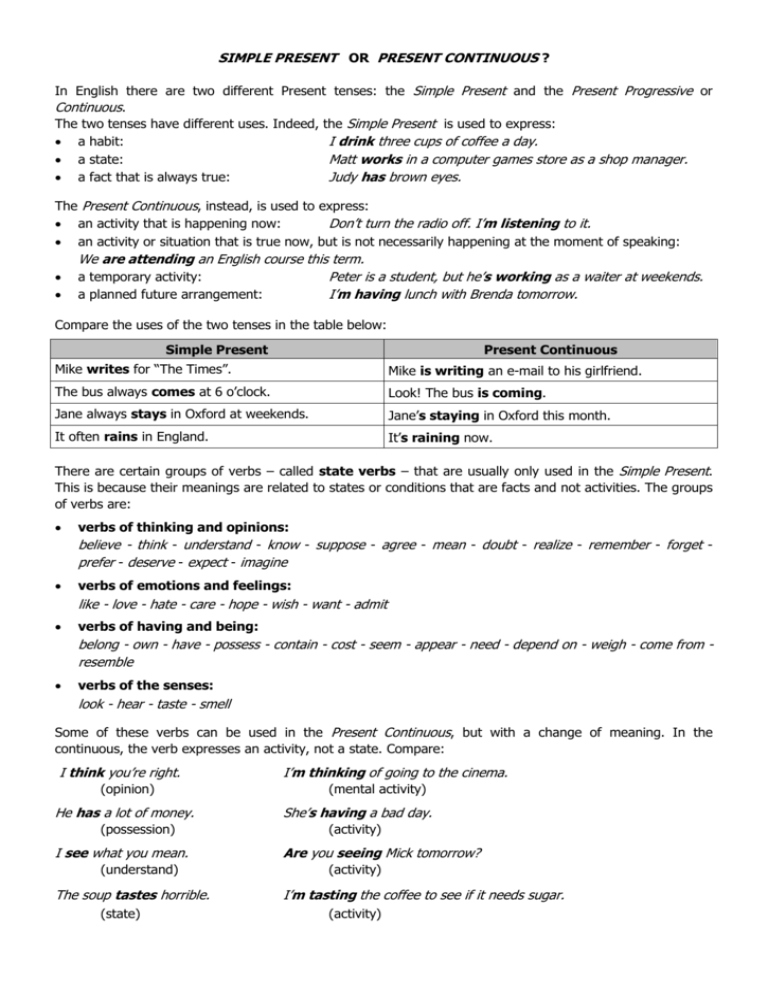
SIMPLE PRESENT OR PRESENT CONTINUOUS ? In English there are two different Present tenses: the Simple Present and the Present Progressive or Continuous. The two tenses have different uses. Indeed, the Simple Present is used to express: a habit: I drink three cups of coffee a day. a state: Matt works in a computer games store as a shop manager. a fact that is always true: Judy has brown eyes. The Present Continuous, instead, is used to express: an activity that is happening now: Don’t turn the radio off. I’m listening to it. an activity or situation that is true now, but is not necessarily happening at the moment of speaking: We are attending an English course this term. a temporary activity: Peter is a student, but he’s working as a waiter at weekends. a planned future arrangement: I’m having lunch with Brenda tomorrow. Compare the uses of the two tenses in the table below: Simple Present Present Continuous Mike writes for “The Times”. Mike is writing an e-mail to his girlfriend. The bus always comes at 6 o’clock. Look! The bus is coming. Jane always stays in Oxford at weekends. Jane’s staying in Oxford this month. It often rains in England. It’s raining now. There are certain groups of verbs – called state verbs – that are usually only used in the Simple Present. This is because their meanings are related to states or conditions that are facts and not activities. The groups of verbs are: verbs of thinking and opinions: believe - think - understand - know - suppose - agree - mean - doubt - realize - remember - forget prefer - deserve - expect - imagine verbs of emotions and feelings: like - love - hate - care - hope - wish - want - admit verbs of having and being: belong - own - have - possess - contain - cost - seem - appear - need - depend on - weigh - come from resemble verbs of the senses: look - hear - taste - smell Some of these verbs can be used in the Present Continuous, but with a change of meaning. In the continuous, the verb expresses an activity, not a state. Compare: I think you’re right. (opinion) He has a lot of money. (possession) I see what you mean. (understand) The soup tastes horrible. (state) I’m thinking of going to the cinema. (mental activity) She’s having a bad day. (activity) Are you seeing Mick tomorrow? (activity) I’m tasting the coffee to see if it needs sugar. (activity) Activities Complete the following sentences with the correct form of the verbs given. is feeding / feeds is reading / reads is wearing / wears is making / makes is talking / talks is practising / practises Ex.: 1. 2. 3. 4. 5. 6. Judy … is walking / walks is reading … a book. She … reads … every night. My brother ……………………………… to school. He always ……………………………… there. Helen ………………………… the violin regularly. She ………………………… in her bedroom at the moment. Mum always …………………………… the dog early in the morning. She ……………………………… him now. Jim often ……………………………… sunglasses. He ……………………………… a new pair today. My cousin ……………………………… clothes for a hobby. This week she ……………………………… a skirt. Susan ……………………………… to her boyfriend on the phone. She ………………………… to him every day. Translate the following sentences using either the Present Continuous or the Simple Present. Ex.: Di solito andiamo al pub, ma questa sera andiamo al ristorante. We usually go to the pub, but tonight we’re going to a restaurant. 1. 2. 3. 4. 5. 6. Mi piace la musica classica, ma preferisco la musica pop. Sto provando a spiegare, ma non mi stai ascoltando. Di solito John guarda la televisione a quest’ora, ma stasera legge un libro. “Cosa fate?”. “Giochiamo al computer”. Ci vediamo spesso e ci divertiamo sempre. Non vado spesso in discoteca, ma mi sto divertendo molto questa sera. Find the mistake in each sentence and correct them. Ex.: What’s your brother’s job? He’s working in a bank. What’s your brother’s job? He works in a bank. 1. 2. 3. 4. 5. 6. 7. 8. Sue’s not here at the moment – she’s play tennis. “What do you do?” . “I’m making the dinner”. “Is that your hotel?”. “No, I’m stay at the Sheraton over there”. The climate in Scotland is wet. It’s raining a lot. “What time are you getting up every morning?”. “At about seven o’clock”. Do you knowing Barbara? “Are you coming to the party tomorrow?”. “Yes, I do”. You’re driving to Liverpool, don’t you? Translate the following letter using the Present Continuous. Ciao Davide! Come stai? Io mi sto divertendo molto in Inghilterra. Al momento abito a Londra con mio cugino. Studiamo al King’s College. Abitiamo nell’appartamento di mio zio. Non paghiamo niente per l’appartamento, così risparmiamo molti soldi. Sto anche lavorando in un pub di sera. Non guadagno molto ma incontro molte ragazze! E tu cosa fai? Lavori molto o esci ogni tanto? Ti vedi ancora con Carla? Pensi di venire qui a Londra? Scrivimi presto. Hi Davide! How are you? …………………………………………………… ………………………………………………………………………… ………………………………………………………………………… ………………………………………………………………………… ………………………………………………………………………… ………………………………………………………………………… ………………………………………………………………………… ………………………………………………………………………… ………………………………………………………………………… ………………………………………………………………………… ………………………………………………………………………… …………………………………………………………………………
